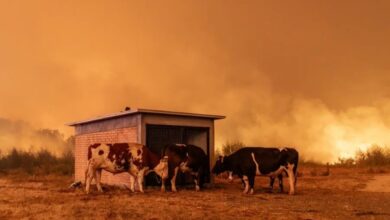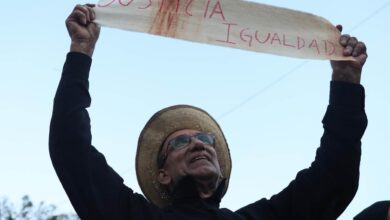Puerto Rico: the frenzy after the storm
After the hurricane hit the island, the consequences have become incalculable and despair begins to take control of the situation

Leer en Español: Puerto Rico quiere levantarse
Puerto Rico has been affected after Hurricane Maria passed over the island as a category 5 hurricane. After considering the severity of the consequences, the island had to be declared in a state of emergency. Maria became the worst storm that has crossed the isle in the last 80 years. As of right now, 16 people have been killed and there are countless material damages.
Puerto Rico was without electricity and countries such as Cuba have already offered reconstruction assistance. In addition, the Internet network was severely damaged; people had to wait days before they were able to communicate with their relatives outside the island.
Due to the magnitude of the tragedy, the island is still under curfew, which starts at six in the afternoon and has been established indefinitely. Meanwhile, the airport is expected to start operating in the upcoming days as it is estimated that about 1,000 tourists want to leave the island, but are currently trapped due to weather conditions and the situations of the infrastructure of the airport itself.
Experts have stated that about 60% of San Juan, the capital of Puerto Rico, has been devastated. The areas not directly affected by hurricane Maria are having to deal with floods due to the heavy rains that didn’t stop until last Sunday. The roads will be priority in order to beginning reconstruction of the island since through these, external help can reach remotest places.
A week after the hurricane hit, the most serious consequences begin to emerge. Hospitals are working to their full capacity, but feared that power plants will fail as a result of the lack of fuel, as well as electricity. Due to the absence of cellular service and Internet, residents must look for alternatives in order to be able to communicate with their families abroad.
Living conditions become worse as the days go by; receiving the necessary daily goods has become an arduous task while gasoline has also become a scarce commodity that threatens to further destabilize the country. For Puerto Rico, long affected by its debt and a basically bankrupt financial system, reconstruction appears to be a road that will take longer than expected.
The desperation on the island begins to take possession of each of the inhabitants; they begin to question the management of finances, then lash out at residents for hoarding scarce assets, and complicate survival.
Latin American Post | Carlos Eduardo Gómez Avella
Copy edited by Susana Cicchetto





